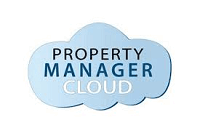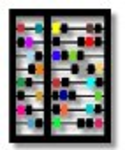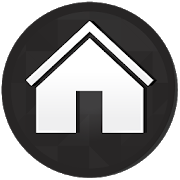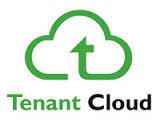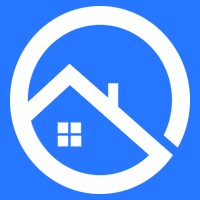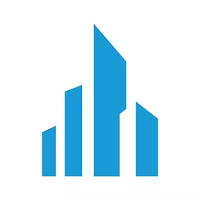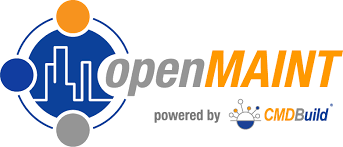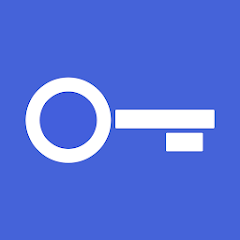Yes, most modern property management software supports multi-device and cross-platform access. This means you may use the software on your laptop, tablet, or smartphone, regardless of what operating system they use. This allows property managers to operate from several devices and locations, streamlining processes and enhancing productivity. Furthermore, this enables seamless cooperation and communication among team members, ensuring everyone is on the same page.
List of 20 Best Property Management Software
Seekom iBex is a cloud-based property management software for hotels, motels, and holiday parks. With its seamless integration, real-time updates, and revenue optimization capabilities, Seekom iBex streamlines your operations and enhances communicati...Read More Seekom iBex
Property Manager Cloud - a cloud-based software designed to simplify property management. Enjoy its user-friendly interface with features like an owner and tenant portal, maintenance request tracking, and tenant screening. It streamlines tasks, savin...Read More Property Manager Cloud
Abacus 21 is a software solution for managing your hospitality and club business. With features like reservation management, membership organization, accounting, and point-of-sale operations, Abacus 21 streamlines your administrative tasks for improv...Read More Abacus 21
Rezware is reservation management software that simplifies operations and enhances customer experiences. With its user-friendly interface and advanced analytics features, Rezware helps businesses optimize efficiency and track valuable insights. With...Read More Rezware
Open Home Pro is a open house management tool, designed to simplify and optimize the open house experience for real estate agents. Featuring a user-friendly interface and advanced capabilities like visitor sign-in and customizable lead capture forms,...Read More Open Home Pro
Pickspace is a cloud-based solution that simplifies the management of various properties such as residential and commercial properties, co-working spaces, storage units, shopping centers, and retail stores. It effectively streamlines operations and e...Read More Picksapce
ORPM, an all-inclusive open source software, simplifies property management by enabling you to create customizable web database applications without any coding. Streamline your tasks with its efficient tools and effortlessly manage your properties th...Read More ORPM
Beds24 is a hotel management solution designed to simplify your business operations. Experience hassle-free online booking, secure payment processing, and efficient multi-channel workflow management. Improve your customer relationships with Beds24s i...Read More Beds24
Yardi is a software platform that serves the needs of both small and large companies across various industries, including public spaces, military housing, and corporate offices. With its emphasis on quality, innovation, and competitive pricing, Yardi...Read More Yardi
Hemlane is a rental management software that simplifies the entire rental process. It allows landlords to easily find and manage tenants, with features like listing on multiple websites, lead tracking, automated late fees, document storage, maintenan...Read More Hemlane
TenantCloud is the leading property management solution. Access important tenant and maintenance reports effortlessly on your iPhone or iPad, allowing you to efficiently manage your properties from anywhere. Take control of maintenance requests by ei...Read More Tenant Cloud
Oracle Hospitality is a restaurant management software designed for businesses of all scales. It provides advanced features to help accelerate your restaurants growth. With its intuitive and effective systems, cultivating strong customer relationship...Read More Oracle Hospitality
Elliot is software created for property owners and onsite engineers. With its intuitive design, it simplifies facility management and increases productivity. This user-friendly solution enables effective management of properties, streamlining process...Read More Elliot
Innago, the premier rental property management software for landlords and property managers of small-to-mid-sized properties. With a free trial that doesnt require a credit card, Innago simplifies and streamlines your rental management processes. Exp...Read More Innago
AppFolio is a property management software created specifically for real estate experts, builders, developers, and contractors. It boasts cutting-edge automation and easy mobile accessibility to foster business growth. With its all-in-one accounting...Read More AppFolio
PROMAS solution for property managers seeking to streamline residential property management. Offering both cloud-based and on-premises options, PROMAS can be accessed from various devices, including Apple, Windows, and Google. Stay organized and effi...Read More Promas
Crexi is a platform for success in the commercial real estate world. Our all-in-one solution offers a comprehensive suite of tools and features that streamline every aspect of the industry. From property listings and marketing to deal management and...Read More Crexi
OpenMaint, based on the open source CMDBuild platform, is a property management software that raises the bar in terms of quality and technology. This advanced tool enables users to effortlessly manage and analyze certifications, and other vital data...Read More OpenMaint
Experience the power of Rentroom – your all-in-one rental property management software. Revolutionize your business with our comprehensive solution that takes care of rent collection, maintenance, accounting, communication, and leasing. With a...Read More Rentroom
Cozy solution for all your property management needs. As a free and reliable software, Cozy is specially designed for landlords and property managers to simplify their rental process. With easy setup for your properties and comprehensive support at e...Read More Cozy
Learn More About Property Management Software
- What Is Property Management Software?
- What Are The Recent Trends In Property Management Software?
- Benefits Of Using Property Management Software
- Important Factors To Consider While Purchasing Property Management Software?
- What Are The Key Features To Look For In Property Management Software?
- Why Do Businesses Need Property Management Software?
- How Much Time Is Required To Implement Property Management Software?
- What Is The Level Of Customization Available In Property Management Software?
- Which Industries Can Benefit The Most From Property Management Software?
- Conclusion
What Is Property Management Software?
Property Management Software is a digital solution that simplifies and automates the process of managing rental properties. It is intended to make procedures like rent collecting, tenant screening, maintenance requests, accounting, and resident communication more efficient. This software is a tremendous asset for landlords, property managers, and real estate investors since it saves time, increases efficiency, and boosts profitability.
Rent collection is a major component of property management software. It enables landlords to set up online rent payments, so removing the need for paper checks and in-person transactions. This saves time, minimizes the risk of late payments, and enhances cash flow. Tenant screening is an important part of managing rental properties, and Property Management Software makes it easier and more efficient.
Landlords can use this software to run background and credit checks on possible tenants, allowing them to make more informed selections and avoid difficult renters. Maintenance requests can be a burden for landlords and property managers, but Property Management Software makes the process easier. The platform allows tenants to make maintenance requests, while landlords can track and assign jobs to suitable maintenance people.
This streamlines the process, resulting in rapid and effective resolution of maintenance issues. Accounting is another important aspect of Property Management Software. It enables landlords to track their income and expenses, prepare financial reports, and even collect and pay bills directly from the software. This streamlines record-keeping, lowers human error, and saves time on financial activities.
Finally, using Property Management Software improves contact with residents. This program allows landlords to deliver essential updates, announcements, and other communication to tenants, minimizing the need for various kinds of contact while enhancing overall tenant satisfaction.
What Are The Recent Trends In Property Management Software?
Property management software has grown greatly in recent years, owing to technological improvements and shifting real estate market demands. To make an informed decision, a potential buyer must stay up to date on the latest innovations in property management software.
We will look at the most recent trends in property management software that you should consider while looking for a solution.
1. Cloud-Based Solutions: One of the most significant changes in property management software is the transition to cloud-based solutions. These software programs are accessed via the internet, which eliminates the need for on-premise installation and maintenance. Cloud-based software provides additional flexibility because it can be accessed from any device that has an internet connection. It also provides data protection and backups, making it an excellent alternative for property managers who need to access their data while on the go.
2. Mobile Optimization: With the increasing surge of smartphone usage, it's no surprise that property management software is becoming more mobile-friendly. Many software suppliers now provide mobile apps or customized websites that allow property managers to view their data from their phones or tablets. This trend is especially beneficial for on-site property managers who must manage chores and communicate with tenants on the go. With a few clicks on their mobile device, property managers can immediately react to tenant inquiries, arrange maintenance, and even accept rental payments.
3. Data Analysis And Reporting: Property management software now includes comprehensive data analytics and reporting functions. Property managers have the ability to compile reports on property performance, finances, maintenance patterns, and more. These insights enable property managers to make data-driven decisions and discover potential areas for improvement. Furthermore, data analytics enables property managers to track key performance indicators and monitor their property's ROI in real time.
4. Integration With Other Systems: Another trend in property management software is the ability to interact with other systems. For example, a property management solution can be integrated with accounting software to automate financial transactions. This integration simplifies the workflow and eliminates human data entry, reducing errors and saving time. Property management software can also be integrated with tenant screening services, digital signature software, and marketing platforms, resulting in a complete solution for all property management requirements.
5. Artificial intelligence And Automation: The use of artificial intelligence (AI) and automation in property management software is gaining popularity. These technologies can automate monotonous chores like issuing tenant notices and scheduling repairs. AI software may also learn from past data to forecast future trends, such as tenant turnover rates or maintenance expenses. This data-driven strategy streamlines operations, increases productivity, and frees property managers to focus on more important responsibilities.
Benefits Of Using Property Management Software
Introduction: Property management software helps property owners and managers manage their properties more efficiently and effectively. This program is intended to streamline and automate different parts of property management, enabling users to save time, money, and increase productivity.
Let's explore, we'll look at the benefits of utilizing property management software and why it's a good investment for any property owner or manager. Advantages of Using Property Management Software:
1. Organized And Centralized Data Management: One of the primary advantages of adopting property management software is the ability to organize and centralize all property-related data in a single location. This contains tenant information, lease agreements, repair and maintenance records, financial information, and more. With all data saved on a safe and easily accessible platform, property managers can rapidly obtain information, track essential tasks, and make data-driven choices.
2. Effective Communication And Collaboration: Property management software includes built-in communication and collaboration features that allow for seamless communication among property owners, managers, and tenants. This includes tools like automated rent reminders, maintenance request portals, and online lease signing. This not only enhances communication, but also streamlines operations, resulting in greater efficiency and tenant satisfaction.
3. Automated Financial Management: Property management requires a variety of financial duties, including rent collecting, invoicing, and spending tracking. Property management software streamlines these procedures, saving managers time and effort. It also gives precise and real-time financial data, allowing property owners to see their financial performance and make more educated decisions.
4. Improved Tenant Experience: Property management software allows tenants to conveniently make online rent payments, examine lease documents, submit maintenance requests, and connect with property managers. This provides a convenient and pleasurable experience for tenants, resulting in greater retention rates and positive evaluations for your properties.
5. Streamlined Maintenance And Repair Procedures: Keeping a property requires regular inspections, repairs, and maintenance duties. Property management software makes this process easier by allowing managers to schedule and track maintenance chores, get real-time updates on repairs, and rapidly assign work to vendors. This results in faster response times and more maintenance efficiency.
6. Data Analysis And Reporting: Property management software has extensive data analysis and reporting features. This enables managers to monitor key parameters like vacancy rates, rental income, and expenses in order to analyze property performance and make data-driven choices. This kind of intelligence enables property owners and managers to optimize operations and maximize earnings.
Important Factors To Consider While Purchasing Property Management Software?
Property management software is an invaluable tool for increasing the efficiency and organization of your property management firm. However, with so many options available in the market, it might be difficult to select the best one for your specific requirements.
To assist you make an informed selection, we've compiled a list of key aspects to consider when selecting property management software.
1. Scalability: One of the most important considerations to evaluate is if the software can accommodate your company as it expands. Look for a system that can quickly grow up to accommodate more properties, units, tenants, and users while maintaining performance.
2. Features And Functioning: Before making a purchase, ensure that you understand the software's features and functioning. Assess your company's requirements and check that the software covers all of the required functionality, such as tenant management, lease monitoring, rent payment processing, maintenance tracking, and financial reporting.
3. User-Friendly Interface: The software's interface should be straightforward and simple to navigate and utilize. Complex and clumsy interfaces can have an impact on your team's productivity and necessitate additional training and support, which increases costs.
4. Integration Capabilities: The property management software should be compatible with other company tools and software, such as accounting software, online payment systems, and marketing platforms. This will improve your processes by eliminating the need for manual data entry.
5. Cloud-Based VS On-Premise: Determine whether you prefer cloud-based or on-premise software. While cloud-based software is more flexible and accessible, on-premise software provides greater control and customization choices. Choose the option that best meets your company's objectives and needs.
6. Customer Support: Look for a software company that provides dependable customer service, including training and technical assistance. You want to make sure that the vendor is responsive and can help you with any issues that may emerge.
7. Security: Because you will be managing sensitive data such as financial and personal information, make sure that the software has strong security mechanisms in place to protect your data. To avoid future data breaches, the vendor should implement data backup and disaster recovery procedures.
8. Cost: Finally, assess the software's cost and the value it will add to your firm. Look for honest pricing that includes all necessary features and support, and compare several alternatives to determine which one provides the most value for money.
What Are The Key Features To Look For In Property Management Software?
When it comes to selecting the best property management software, there are a few crucial things to look for so you can make an informed decision. These characteristics can have a significant impact on how efficiently and effectively you manage your properties.
Here are the essential elements to consider while choosing a property management software.
1. Automated Rent Collection: One of the most significant features to look for in property management software is the ability to collect rent automatically. This feature enables tenants to pay their rent online, minimizing the need for human collection and lowering the likelihood of late or missed payments.
2. Tenant And Lease Management: A good property management software should have options for managing tenant information and leases. This involves keeping tenant information, tracking lease terms, and automatically sending lease renewal notices.
3. Maintenance Tracking: The program should provide a method to track maintenance requests and schedule repairs. This not only facilitates the prompt resolution of maintenance concerns, but it also maintains track of the expenditures involved with each request.
4. Accounting And Financial Management: Choose software that includes budgeting, revenue and expense monitoring, and financial reporting. This will simplify and organize accounting and financial management tasks.
5. Communication Tools: Clear communication is essential in property management, particularly when dealing with tenants and contractors. Look for software that includes communication options like email and text messaging to ensure timely and effective communication.
6. Document Management: Keeping and arranging vital papers like leases, contracts, and insurance policies is critical for property management. A decent piece of software should include a document management feature that makes it easy to save, retrieve, and share documents.
7. Mobile Accessibility: In today's fast-paced environment, the ability to manage your properties on the go is essential. Look for software that includes a mobile app or a web-based platform that is accessible at all times and from any location.
8. Scalability: When selecting property management software, it is critical to consider the future expansion of your company. Ensure that the program can handle an increase in the number of properties and tenants without causing performance difficulties.
9. Integration With Other Systems: Your software should be compatible with other critical tools such as online payment gateways, accounting software, and marketing platforms. This will improve its functionality and simplify your property management responsibilities.
10. Customer Support And Training: Finally, select a software vendor that provides enough customer support and training. This will ensure that you have access to help whenever you need it and that you can fully utilize the product.
Why Do Businesses Need Property Management Software?
As organizations of all sizes and industries continue to invest in assets, the demand for effective and streamlined property management systems grows. Here is when property management software comes in handy. This program, designed to properly handle all areas of property administration, from tenant screening to lease management and rent collection, is a must-have for modern enterprises. But why do businesses require property management software?
Let's look at the main causes.
1. Streamline Operations: Running a property is difficult, especially when there are several units and renters to maintain. Using pen and paper or obsolete technology might result in disorderly operations, missed deadlines, and rent collecting delays. Property management software automates and digitizes different operations, allowing organizations to save time and effort while maintaining accuracy and efficiency.
2. Centralized Data Management: Property management software allows you to keep all of your data, including as leases, tenant information, maintenance requests, and payment records, in one area. This reduces the need for several spreadsheets and papers, making data more accessible and manageable.
3. Tenant Management: Keeping track of tenant information, correspondence, and lease terms can be difficult and time-consuming. Property management software makes this process easier by saving all tenant information in one location, allowing businesses to conveniently track and communicate with tenants, as well as produce and save lease agreements.
4. Financial Management: Maintaining accurate financial records is critical for any business, but it is especially necessary when managing properties. Property management software automates financial procedures including rent collection, late fees, and expenses, giving firms real-time financial data and reporting.
5. Maintenance Management: Maintaining properties is an important component of property management, and this software makes it easier by allowing businesses to log maintenance requests, schedule repairs and inspections, and track spending.
6. Scalability: As a company expands and buys additional properties, maintaining them without the correct tools can become daunting. Property management software is highly scalable, which means it can adapt to the needs of businesses, whether they manage a small number of units or a huge portfolio of diversified properties.
How Much Time Is Required To Implement Property Management Software?
The time necessary to implement property management software varies based on a number of factors, including the size of your property portfolio, the type of software used, and the level of customization required. In general, the implementation period can range from a few weeks to several months. It is critical to plan ahead of time and give yourself enough time to ensure a smooth and successful deployment.
The first step in deploying property management software is to evaluate your existing processes and find any opportunities for improvement. Depending on the intricacy of your activities, this could take anything from a few days to one week. The next step is to conduct research and select the appropriate program for your requirements. This stage can take a few weeks because it is necessary to thoroughly study several possibilities and select the one that best meets your needs and budget.
Once you've decided on your program, the implementation phase can begin. This normally includes installing the software, moving data from your previous system, and teaching your employees on how to use the new software. Depending on the size of your portfolio, this could take many weeks or months. It is critical to provide adequate time for staff training and troubleshooting any issues that may develop throughout the implementation process.
The amount of customisation required for your program might significantly impact the implementation timeline. If you require a highly personalized solution, the implementation process may take longer due to additional development and testing time. However, if you choose a more unconventional option, the implementation process may be faster.
It is critical to remember that adopting property management software is a continuous process. Your team may need some time to completely adjust to the new system and handle any issues. Additionally, software updates and new features may be required in the future. As a result, it is critical to have a specialized team to administer the program and constantly analyze its performance.
What Is The Level Of Customization Available In Property Management Software?
Property management software comes with a variety of features and options to help streamline and automate property management tasks. One important aspect for buyers to consider is the level of customization available in these software solutions. Here, we will delve into the different customization options offered by property management software and their benefits. Most property management software allows for some level of customization to meet the specific needs of a property manager or company.
This includes the ability to add, remove, and rearrange features according to their priorities. Customization also extends to the branding of the software, with options to add logos, colors, and other branding elements to create a personalized experience. Additionally, property management software often allows users to create custom reports and dashboards to track and analyze data that is most relevant to their business. This allows for a more tailored approach to managing properties, as well as providing valuable insights for decision-making purposes.
Many property management software also offer flexible integrations with other tools and software, allowing users to further customize their experience by incorporating their preferred tools and processes into the software. One notable customization feature that buyers should look for in property management software is the ability to set user permissions and restrictions. This allows users to control access to sensitive data and features, ensuring the security and privacy of their business operations.
Which Industries Can Benefit The Most From Property Management Software?
Property management software is an invaluable tool for a wide range of sectors, offering simplified and efficient solutions for property and tenant administration. Whether you're a landlord, property manager, or real estate investor, using property management software can help you save time, enhance organization, and boost profits.
Let's explore, we'll look at which sectors can benefit the most from property management software and what important characteristics to look for when selecting a software package.
1. Real Estate Management Companies: Real estate management businesses handle several properties on behalf of their owners. These businesses can considerably benefit from property management software since it allows them to efficiently manage a huge number of properties, tenants, and maintenance requests. Property management software, which includes features such as online rent payment processing, lease administration, and automated messaging, can help real estate management organizations streamline operations and decrease paperwork.
2. Landlords: Landlords with many rental properties might also profit from property management software. This type of software can help with activities like tenant screening, lease management, and rent collecting. It also enables landlords to simply track spending, generate reports, and communicate with tenants, saving time and effort.
3. HOA And Condominium Associations: Homeowners organizations (HOAs) and condominium associations frequently struggle to manage the numerous chores associated with maintaining common spaces and collecting fees from residents. Property management software can automate fee collection, handle maintenance requests, and organize resident communications.
4. Vacation Rental Owners: Property management software can help vacation rental operators manage reservations, communicate with guests, and automate payment processing. Furthermore, some software solutions include capabilities designed exclusively for holiday rentals, such as connectivity with booking platforms and automatic cleaning and maintenance scheduling.
5. Student Housing Providers: Student housing providers encounter particular property management concerns. Property management software can help to simplify the process of leasing to students, managing roommate situations, and communicating with parents. Some software solutions include functionality for maintaining academic timetables and organizing move-in and move-out dates.
Conclusion
To summarize, investing in high-quality property management software is critical for any real estate organization trying to increase efficiency, streamline operations, and maximize profitability. With the right software, property managers can automate chores, track finances, connect with renters and owners, and obtain vital insights into the performance of their portfolios.
When selecting property management software, it is critical to evaluate your specific business requirements, budget, and desired features. Look for software with a user-friendly design, adjustable features, and outstanding customer service. It is also encouraged to use cloud-based software for simple access and smooth updates.
Additionally, study reviews and speak with other property managers to gain a better knowledge of the software's dependability, security, and efficacy. Use free trials and demonstrations to test the software's functionality before purchasing. Remember that investing in property management software ensures your company's future success and growth.
So pick wisely and gain the benefits of better organization, more production, and higher tenant satisfaction. We hope this buyer's guide helped you find the best property management software.
Property Management Software FAQ's
Can Property Management Software Be Accessed Across Multiple Devices And Platforms?
Is Property Management Software Future-Proof And Adaptable To Emerging Technologies Like AI, Blockchain Or IoT?
Yes, most modern property management software is meant to be future-proof and adaptable to upcoming technologies such as artificial intelligence, blockchain, and the Internet of Things. As these technologies mature and become more integrated into the real estate market, the software will be able to effortlessly incorporate them into its operations and procedures.
This guarantees that the software remains efficient and relevant in an ever-changing industry, offering users advanced tools and capabilities to successfully manage their properties. Furthermore, software vendors frequently issue upgrades and new versions that are ready to handle new technologies, making it a long-term solution for property management requirements.
Is There A Free Trial Offered To Assess Property Management Software Before Committing?
Yes, most property management software providers provide a free trial before committing to a paying membership. This allows potential users to test out the software's features and capabilities to see if it satisfies their requirements. The free trial typically lasts 14-30 days and includes access to all features and customer support. This lets you make an informed decision before investing in software.
Does Property Management Software Offer Data Security Features And Meet Regulatory Compliance Standards?
Yes, property management software has data security safeguards and adheres to regulatory compliance norms. These features include secure cloud storage, data encryption, and role-based access control to safeguard sensitive data. The program also supports industry-specific compliance laws like GDPR and CCPA. This ensures that property managers may securely handle and protect tenant data while remaining compliant and avoiding costly penalties.
Can Property Management Software Integrate Seamlessly With Existing Tools And Platforms?
Yes, most current property management software can smoothly interact with existing tools and platforms. This means you can quickly integrate your program with accounting, marketing, and other property management applications. This integration streamlines operations, increases efficiency and production, and removes the need for human data entry. You can also tweak the integration to meet your individual needs and tastes.


